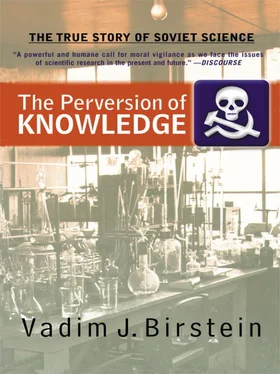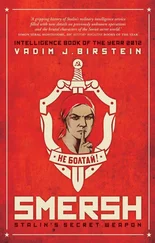AN APPEAL WITHOUT AN ANSWER
My Lord, it has become so hard for any decent person to live in your Socialist Paradise.
—Academician Ivan Pavlov, letter to one of the Bolshevik leaders, Nikolai Bukharin 69
After the end of the Tactical Center affair in 1921, Yakov Agranov fabricated a second case, claiming a “counterrevolution plot” by the nonexistent Petrograd Armed Organization (PBO). This became known as the Tagantsev case. 70A VCheKa Presidium report, “On the plot against the Soviet Authorities discovered in Petrograd,” dated August 29, 1921, was published in the daily Petrogradskya Pravda [Petrograd’s Truth] on September 1, 1921. 71The report included a list of sixty-one participants in the plot and their alleged plan to stage an armed uprising against the Bolsheviks. 72According to the report, the PBO was in contact with the British, Polish, and Finnish intelligence services. Also, the PBO supposedly planned to kill some of the Bolshevik leaders. The case was under the personal control of Dzerzhinsky and Lenin. 73
However, at the time of the report’s publication, these people had already been shot without a trial. The list included many scientists: geographer Vladimir Tagantsev (1889–1921), chemist Mikhail Tikhvinsky (1868–1921), economist Nikolai Lazarevsky (1868–1921), geologist Viktor Kozlovsky (1883–1921), engineer Grigorii Maksimov (1889–1921), and Nikolai Gumilev (1886–1921), one of the best Russian poets and the former husband of another famous poet, Anna Akhmatova. Others were sailors, former officers, students, white-collar workers, housewives, and nurses. There were representatives of all classes, from peasant to aristocracy, and of all ages, from nineteen to sixty. Copies of the list were posted everywhere in Petrograd.
In fact, there was no PBO “plot.” More than 200 persons were arrested by the VCheKa that summer of 1921. 74Agranov used Vladimir Tagantsev, who was among the arrested, to create the case. Professor Tagantsev was secretary of the Academy Sapropelic Society (sapropel is the substance on the bottom of lakes). A special Academy Sapropelic Station was located at the former Tagantsev family country estate. There Tagantsev was arrested with his wife, and their children were put in an orphanage. 75In vain, Tagantsev’s father, the famous criminologist, academician, and former senator, Nikolai Tagantsev (1889–1923), and Mrs. Anna Kad’yan 76appealed to Vladimir Lenin asking for the release of Vladimir Tagantsev. 77Both knew Lenin and his parents personally. But Lenin trusted Dzerzhinsky more than his own friends. On June 19, Lenin received Dzerzhinsky’s description of Vladimir Tagantsev:
Tagantsev Vl[adimir]. Nik[olaevich]…. is an active member of the rightist terrorist organization “The Union for the Revival of Russia” which is connected with and organizes sailors from [the fortress] Kronstadt who live now in Finland. As an experiment, it blew up the monument to Volodarsky. He is an uncompromising and dangerous enemy of the Soviet regime. The case is very extensive and will not be finished soon. 78
Moisei Volodarsky (1891–1918, a pseudonym of Goldstein), chairman of the Petrograd Committee, was assassinated by the Left Socialist revolutionary Sergeev in June 1918. 79Knowing that Vladimir Tagantsev had already been shot, Lenin answered Mrs. Kad’yan: “The accusations against him are so serious and the evidence so convincing that it is impossible to release him now.” 80
Although the details of the case are still unknown, it is apparent that Tagantsev in fact was in contact with Russian immigrants in Finland, especially the survivors of the Kronstadt uprising against the Bolsheviks in March 1921. 81Kronstadt was a strategic island fortress and naval base in the Gulf of Finland about twenty miles west of Petrograd. Its garrison played an active and important role in the Bolshevik Revolution in 1917 and later in the Civil War. But in March 1921, the sailors of the fortress rose up against the regime with the slogan “Soviets Without Communists.” 82They demanded the restoration of political freedom, the release of arrested Socialists, and elections. They had a deep hatred for the VCheKa: “The power of the police and the gendarme monarchy passed into the hands of the Communist usurpers, who, instead of giving the people freedom, instilled in them the constant fear of falling into the torture chambers of the Cheka, which in their horrors far exceed the gendarme administration of the tsarist regime,” wrote the rebels’ newspaper. 83On March 16, about 50,000 Red Army troops and volunteers under the command of General Mikhail Tukhachevsky crossed the open ice and attacked the fortress, which was defended by 15,000 sailors and soldiers. After two days of fierce fighting, the fortress was in Bolshevik hands again. The captured Kronstadters filled the jails and dungeons of Petrograd. “Months later they were still being shot in small batches, a senseless and criminal agony,” witnessed a contemporary. 84Later, on June 11, 1937, Deputy Commissar of Defense Marshal Tukhachevsky and a group of the highest-level Red Army commanders were charged with treason. The next day, they were tried in a closed military court and shot. 85
The Petrograd office of the VCheKa had its informants among the immigrants, who lived in the barracks of the fortress Ino. This fortress had been given to Finland in 1918 (now it is the town of Privetinskoe, near St. Petersburg). The informants became aware of Tagantsev’s and several of his friends’ contacts with the immigrants. 86At first Tagantsev refused to answer Agranov’s questions. After he had spent forty-five days in terrible conditions, Agranov offered him a compromise: If Tagantsev disclosed all members of his organization, he would guarantee fair treatment and judgment of all arrested. If Tagantsev refused, all persons, whether guilty or innocent, would be shot. After three hours of hesitation, Tagantsev accepted the proposal, and on July 28, 1921, the agreement was put in writing. Tagantsev promised to give detailed testimony about the PBO and its members “to lighten the fate of the members of our process.” Agranov promised a fair open trial and no death penalty for any arrested person.
The events that followed showed that the agreement was simply a Chekist trick. Agranov immediately received Commissar Dzerzhinsky’s approval to finish the Tagantsev case. 87After Tagantsev’s following two-day interrogation, additional mass arrests began in Petrograd on July 31.
The Russian Physical Chemistry Society tried to save the arrested chemists Mikhail Tikhvinsky, Aleksandr Gorbov, and Boris Byzov. In a letter to Lenin, the society characterized the arrested chemists as “outstanding specialists in the most important branches of chemistry and chemical technology.” 88They asked for “an urgent interrogation and the release of the arrested.” Only Byzov was helped by the letter. He escaped death but was condemned to two years’ forced labor. Lenin was extremely irritated by the letter. On September 3, 1921 (i.e., after Tikhvinsky had already been shot), he wrote a note on the letter: “To Comrade Gorbunov [Lenin’s secretary and later permanent secretary of the Academy of Sciences]: Send an inquiry to the VCheKa. Tikhvinsky was not arrested ‘accidentally’: Chemistry and the counterrevolution do not exclude each other.” 89After the personal intercession of Maxim Gorky, Gorbov was also released. As a result of an appeal by the geologist and paleontologist Nikolai Yakovlev to Lenin, the three geologists V. Yavorsky, N. Pogrebov, and P. Butov were released. 90
All the others were shot between August 24 and 29 near Ivanovskaya Station, not far from Petrograd. The description of the execution given in an official publication in 1922 reminds one of the work of the Nazi Einsatzgruppen:
Читать дальше











